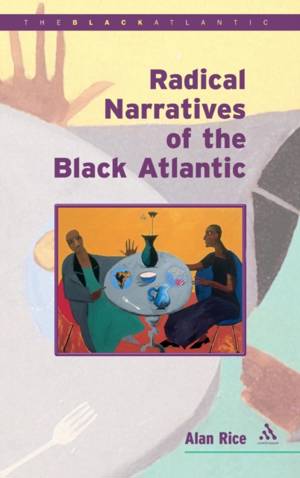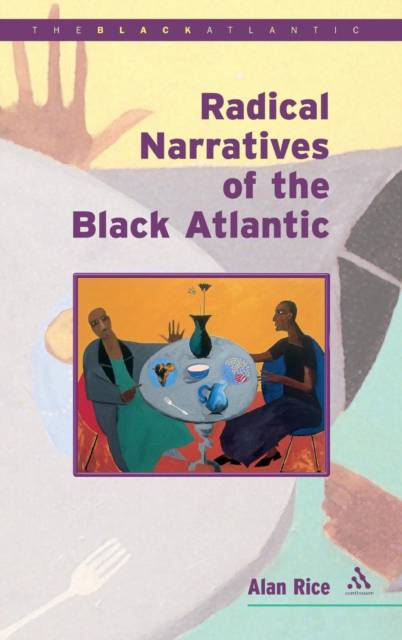
Bedankt voor het vertrouwen het afgelopen jaar! Om jou te bedanken bieden we GRATIS verzending (in België) aan op alles gedurende de hele maand januari.
- Afhalen na 1 uur in een winkel met voorraad
- In januari gratis thuislevering in België
- Ruim aanbod met 7 miljoen producten
Bedankt voor het vertrouwen het afgelopen jaar! Om jou te bedanken bieden we GRATIS verzending (in België) aan op alles gedurende de hele maand januari.
- Afhalen na 1 uur in een winkel met voorraad
- In januari gratis thuislevering in België
- Ruim aanbod met 7 miljoen producten
Zoeken
€ 576,95
+ 1153 punten
Omschrijving
*Broad-based survey of trans-Atlantic black culture*Newest book in the popular Black Atlantic seriesRadical Narratives of the Black Atlantic is a multi-faceted and interdisciplinary take on trans-Atlantic black culture. Alan Rice engages fully with Paul Gilroy's paradigm of the Black Atlantic through examination of a broad array of cultural genres including music, dance, folklore and oral literature, fine art, material culture, film and literature. The aspects of black culture under discussion range from black British gravesites to sea shanties, from the novels of Toni Morrison to the paintings of the Zanzibar born black British artist Lubaina Himid and from King Kong to the travels of Frederick Douglass and Paul Robeson. The book places such figures as the African American traveller and Barbary slave narrator Robert Adams and the West Indian slave narrator Mary Prince in a Black Atlantic context that explicates them fully. A chapter on the Titanic disaster shows how diasporan Africans composed oral poems about the disaster to criticise the discriminatory practices of its owners and racial imperialism. Overall, the book argues for the crucial importance of Black Atlantic cultures in the formation of our modern world. Moreover, it argues that looking at Black culture and history through a national lens is distorting and reductive.
Specificaties
Betrokkenen
- Auteur(s):
- Uitgeverij:
Inhoud
- Aantal bladzijden:
- 288
- Taal:
- Engels
- Reeks:
Eigenschappen
- Productcode (EAN):
- 9780826456069
- Verschijningsdatum:
- 30/04/2003
- Uitvoering:
- Hardcover
- Formaat:
- Genaaid
- Afmetingen:
- 164 mm x 239 mm
- Gewicht:
- 653 g

Alleen bij Standaard Boekhandel
+ 1153 punten op je klantenkaart van Standaard Boekhandel
Beoordelingen
We publiceren alleen reviews die voldoen aan de voorwaarden voor reviews. Bekijk onze voorwaarden voor reviews.









